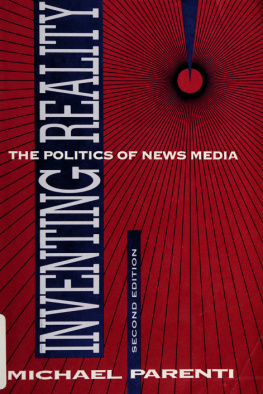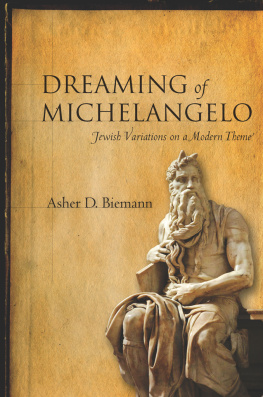Biemann - Inventing New Beginnings
Here you can read online Biemann - Inventing New Beginnings full text of the book (entire story) in english for free. Download pdf and epub, get meaning, cover and reviews about this ebook. year: 2011, publisher: Stanford University Press, genre: Politics. Description of the work, (preface) as well as reviews are available. Best literature library LitArk.com created for fans of good reading and offers a wide selection of genres:
Romance novel
Science fiction
Adventure
Detective
Science
History
Home and family
Prose
Art
Politics
Computer
Non-fiction
Religion
Business
Children
Humor
Choose a favorite category and find really read worthwhile books. Enjoy immersion in the world of imagination, feel the emotions of the characters or learn something new for yourself, make an fascinating discovery.
Inventing New Beginnings: summary, description and annotation
We offer to read an annotation, description, summary or preface (depends on what the author of the book "Inventing New Beginnings" wrote himself). If you haven't found the necessary information about the book — write in the comments, we will try to find it.
Inventing New Beginnings — read online for free the complete book (whole text) full work
Below is the text of the book, divided by pages. System saving the place of the last page read, allows you to conveniently read the book "Inventing New Beginnings" online for free, without having to search again every time where you left off. Put a bookmark, and you can go to the page where you finished reading at any time.
Font size:
Interval:
Bookmark:
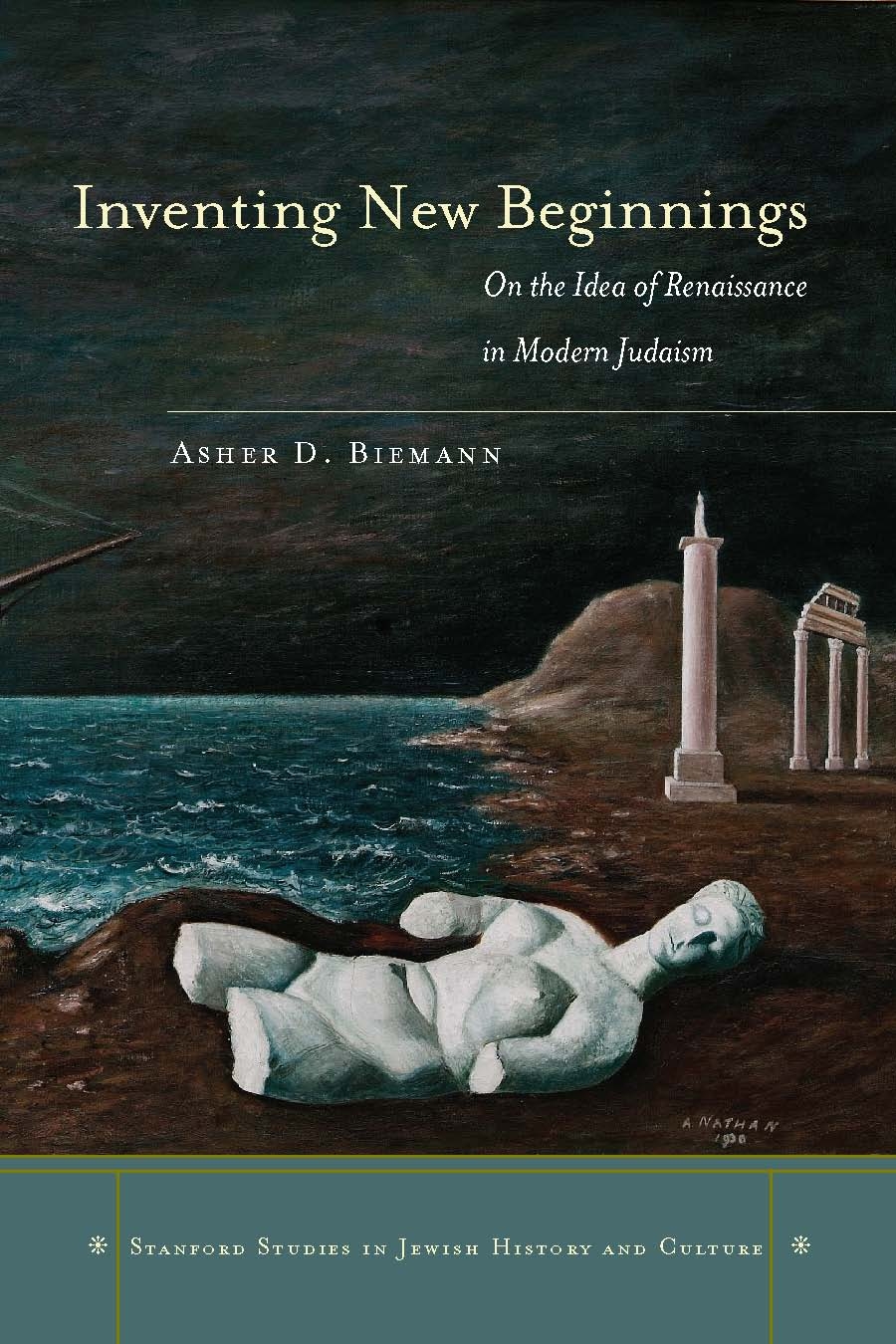
The present book was written, for better or worse, in a state of chosen solitude. All the more, then, should I like to single out the few whose moral and intellectual support has helped me more than they may ever know. David Hall was the first to listen to my ideas on renaissance with an attentive ear and to express a feeling of enthusiasm in the project that stayed with me through all its phases. Peter Ochs was the first to read the manuscript in its entirety (and when it was still immodestly long), and who continued, from beginning to end, to believe in its reclusive author. His encouragement, practical wisdom, and friendship put me in infinite debt. My dear colleagues Larry Bouchard, Valerie Cooper, Jamie Ferreira, Martien Halvorson-Taylor, Paul Jones, Chuck Mathewes, and Vanessa Ochs all read substantial parts of the finished manuscript, as did Liz Shanks Alexander, who shook her head, but shook it in her special way. David Myers took it upon himself to read the chapter on Writing Jewish History in Resurrection. Paul Mendes-Flohr was there to help, as always, when the manuscript and its author were filled with doubt. Harry Gamble and Paul Groner have created an atmosphere of unique comfort and welcome during their tenures as chair of the Department of Religious Studies at the University of Virginia. Daniel Weiss and Peter Kang have helped me more than graduate students should be allowed to do. Bruce Holsinger has taught me wisely how to sell myself and how to spell the word moot. To all of them I am immensely grateful.
A book and its author, of course, have no real existence until they are in print. I owe, then, my existence to the editors of the Stanford Studies in Jewish History and Culture, Aron Rodrigue and Steven J. Zipperstein, who were undeterred by the length and idiosyncrasies of the present manuscript, and especially to Norris Pope, who has gently enforced its reduction, and who has truly been an editor with a soul and a heart. Carolyn Brown, Susan Rescigno, and especially Deidre Schaefer have navigated and improved with great editorial expertise the labyrinth of my non-native language. My thanks also for the enormous generosity of the Lucius N. Littauer Foundation and its chair, William Frost, as well as to the Deans Office at the University of Virginia, whose grants have substantially contributed to the publishing costs of this book.
Finally, I should not fail to thank my familieshere and there: Alvin and Erna, who have adopted their son-in-law with tremendous warmth, and who have always been there to help; and, of course, my dear parents, who, from a distance, have sent unending words of love and cheer. I feel fortunate to come from a home filled with a passion for music, literature, and art, and a tradition in which the vanishing traces of Stefan Zweigs World of Yesterday are still alive and still at work. Little did my parents know that their son would one day become a Luftmensch in the New World. To keep this Luftmensch on the ground has been the privilege of our children, Natan, Gidi, and Adin, who rightly prefer mud pies to lofty things. To bake pies one can really enjoy and fill this home with a love for music and books has been the gift of their fiction-writer mother , Dali a. Toher, this book, and its quiet author, are dedicated.
Briefwechsel IIII: Martin Buber, Briefwechsel aus sieben Jahrzehnten, vols. IIII, ed. Grete Schaeder (Heidelberg, Germany: Lambert Schneider, 19721975).
| GS 1:14:2: | Franz Rosenzweig: Der Mensch und sein Werk. Gesammelte Schriften , ed. Reinhold Mayer and Annemarie Mayer (Dordrecht, The Netherlands: Martinus Nijhoff, 19741984). |
| GWE: | Hugo von Hofmannsthal, Gesammelte Werke in Einzelausgaben , ed. Herbert Steiner (Berlin, Germany: S. Fischer, 19501952). |
| JB I: | Martin Buber, Die Jdische Bewegung: Gesammelte Aufstze und Ansprachen, Erste Folge, 19001914, 2nd ed. (Berlin, Germany: Jdischer Verlag, 1920). |
| JB II: | Martin Buber, Die Jdische Bewegung: Gesammelte Aufstze und Ansprachen, Zweite Folge, 19161920 (Berlin, Germany: Jdischer Verlag, 1920). |
| JuJ: | Martin Buber, Der Jude und sein Judentum. Gesammelte Aufstze und Reden (Gerlingen, Germany: Lambert Schneider, 1993). |
| KSA: | Friedrich Nietzsche, Smtliche Werke, Kritische Studienausgabe , Vols. 115, ed. Giorgo Colli and Mazzino Montinari (Munich, Germany: Deutscher Taschenbuch Verlag and Walter de Gruyter, 1988). |
| LBIYB: | Leo Baeck Institute Yearbook (London, UK: Secker and Warburg, 1956). |
| MBW: | Martin Buber Werkausgabe , Vols. 121, ed. Paul Mendes-Flohr and Peter Schfer (Gtersloh, Germany: Gtersloher Verlagshaus, 2001). |
| RdV: | Hermann Cohen, Religion der Vernunft aus den Quellen des Judentums (Wiesbaden : Fourier, [1928] 1988). |
| RoR: | Hermann Cohen, Religion of Reason Out of the Sources of Judaism , trans. Simon Kaplan (Atlanta: Scholars Press, 1995). |
| Schilpp/Friedman: | Paul Schilpp and Maurice Friedman, eds., Martin Buber (Stuttgart, Germany: Kohlhammer, 1965). |
| Star: | Franz Rosenzweig, The Star of Redemption , trans. William W. Hallo (New York: Holt, Rinehart and Winston). |
| Stern: | Franz Rosenzweig, Der Stern der Erlsung (Frankfurt, Germany: Suhrkamp, 1990). |
| TE: | Ernst Bloch, Tbinger Einleitung in die Philosophie (Frankfurt, Germany: Suhrkamp, 1970). |
| Werke IIII: | Martin Buber, Werke , Vols. 13 (Munich, Germany: Ksel and Lambert Schneider, 19621964). |
Preamble
For the purpose of this study, we do not differentiate between the German and Austro-Hungarian empires, even though their Jewish dispensations were vastly different. One could argue, in fact, that the beginnings of the Jewish Renaissance were distinctly shaped by a multilingual and pluri-cultural awareness characteristic of the Habsburg experience.
Thus, Steven Lowenstein speaks of a profound change of orientation. Cf. idem, Ideologie und Identitt, Deutsch-Jdische Geschichte der Neuzeit III (18711918), ed. Steven Lowenstein et al. (Munich, Germany: C. H. Beck, 1997), 278.
On the connotations of these terms, see David Sorkin, Emancipation and Assimilation: Two Concepts and their Application to German-Jewish History, LBIYB 35 (1990): 1733.
Martin Buber, On the Jewish Renaissance, in The Martin Buber Reader: Essential Writings, ed. Asher D. Biemann (New York: Palgrave, 2003), 139. See also idem, Jdische Renaissance, Ost und West 1, no. 1 (1901): 110. The most comprehensive study on the phenomenon of the German-Jewish Renaissance remains Michael Brenners The Renaissance of Jewish Culture in Weimar Germany (New Haven, CT: Yale University Press, 1996).
See in particular Benjamin Harshav, Language in Time of Revolution (Berkeley: University of California Press, 1993); also idem, Theses on the Historical Context of the Modern Jewish Revolution, Jewish Studies Quarterly 10, no. 4 (2003) : esp. 30912; related to this subject, Barbara Schfer, Jewish Renaissance and TehiyyaTwo that Are One?, ibid.: 32035. For earlier treatments of the Hebrew Renaissance, see Shalom Spiegel, Hebrew Reborn (Cleveland, OH: Meridian, 1962 [1930]), esp. 209416; Joseph Klausner, A History of Modern Hebrew Literature (17851930), trans. Herbert Danby (Westport, CT: Greenwood, 1974 [1932]), esp. 100133. On Ahad Ha-ams role in the Hebrew Revival movement, see Steven Zipperstein, Elusive Prophet: Ahad Haam and the Origins of Zionism (Berkeley: University of California Press, 1993); David H. Weinberg, Between Tradition and Modernity: Haim Zhitlowski, Simon Dubnow, Ahad Ha-Am, and the Shaping of Modern Jewish Identity (New York: Holmes & Meier, 1996). For the impact of Chaim Nachman Bialik, see Nathan Rotenstreich, Bialik on the Renaissance of Jewish Culture, Modern Judaism 10, no. 2 (Spring 1961): 15159. On the aesthetic dimensions of Russian Jewish Renaissance, see Ruth Apter-Gabriel, ed., Tradition and Revolution: The Jewish Renaissance in Russian Avant- Garde Art, 19121928 (Jerusalem : The Israel Museum, 1987).
Font size:
Interval:
Bookmark:
Similar books «Inventing New Beginnings»
Look at similar books to Inventing New Beginnings. We have selected literature similar in name and meaning in the hope of providing readers with more options to find new, interesting, not yet read works.
Discussion, reviews of the book Inventing New Beginnings and just readers' own opinions. Leave your comments, write what you think about the work, its meaning or the main characters. Specify what exactly you liked and what you didn't like, and why you think so.

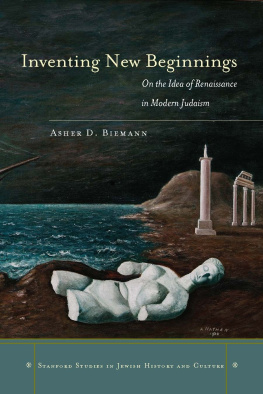
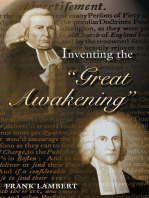


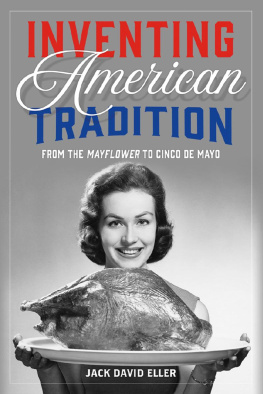
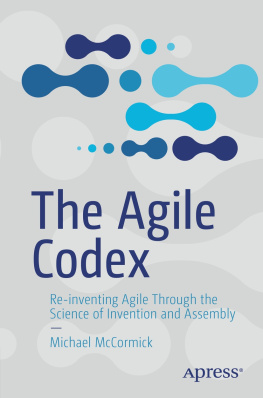

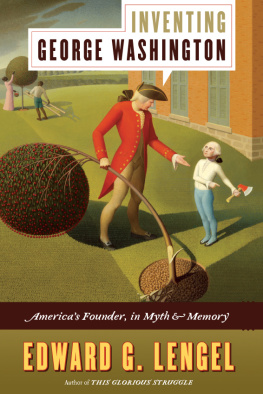
![Crowe Ellie - Hardcore inventing: the IP[superscript]3 method: invent, protect, promote, and profit](/uploads/posts/book/192248/thumbs/crowe-ellie-hardcore-inventing-the.jpg)
